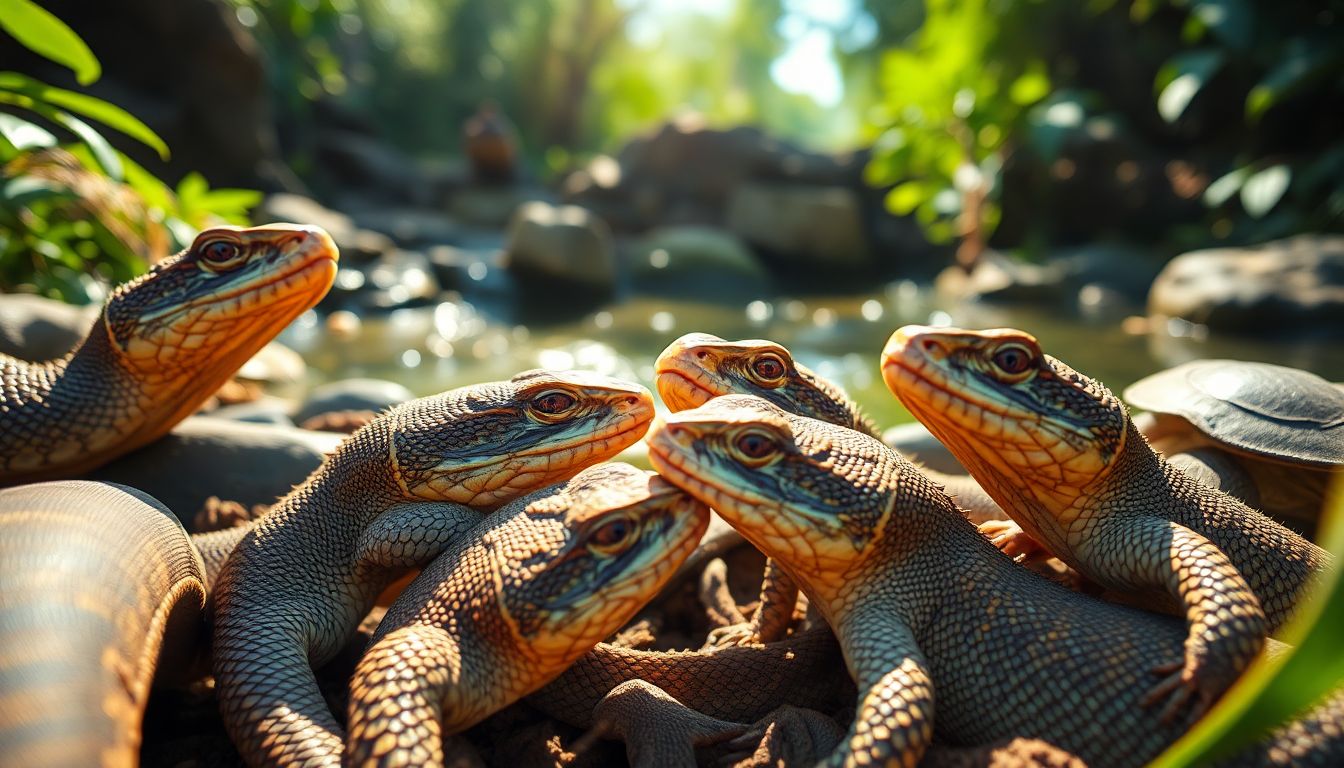
Ever seen a reptile snuggle up to its owner, and wondered what was going on? Is it affection, or just a search for warmth? "Love" is a tricky thing to define, especially when we're talking about animals. It makes you wonder: can reptiles actually experience emotions similar to love, and what does science have to say about it? Let's see what's really going on!
Understanding Reptilian Cognition and Emotion
Let's get into the basics of reptile brains. How do they process information and emotion?
Reptilian Brain Structure
Reptile brains may seem simple, but they're more interesting than you might think. Key parts include the amygdala and hypothalamus. The amygdala handles emotions such as fear and aggression. The hypothalamus controls basic drives like hunger and body temperature. Understanding these structures gives insight into reptile behavior.
The Reptilian Emotional Spectrum
Do reptiles have emotions like us? Scientists think they experience a range of feelings. Fear is a big one, helping them avoid danger. Stress is another common emotion, especially when in captivity. They can even feel pleasure, usually linked to food or warmth. Figuring out this spectrum is key to understanding their behavior.
Anthropomorphism vs. Scientific Observation
It's easy to see human emotions in our pets. This is called anthropomorphism. It can be a problem because we might misinterpret their actions. Instead, we need to watch them carefully. Observe without assuming things. Then we can learn what is really going on.
Evidence of Social Behavior in Reptiles
Some reptiles seem to enjoy being around others. What does their behavior tell us?
Cooperative Hunting and Group Dynamics
Some reptile species work together. Crocodiles sometimes hunt in groups. They coordinate their moves to catch bigger prey. Certain lizards form social hierarchies. Understanding this cooperation shows us reptiles can be pretty complex.
Parental Care and Offspring Recognition
Not all reptiles ditch their young right after hatching. Some, like mother pythons, guard their eggs. They'll even protect their babies for a short time. Some reptiles can recognize their offspring. This parental care shows a kind of bond.
Communication and Signaling Between Individuals
Reptiles chat with each other, just not with words. They use visual cues, like head bobs. Some lizards use bright colors to attract mates. Chemical signals, or scents, are also used. These signals send messages about danger, food, and mating.
Interpreting Affectionate Behavior in Reptiles
Your reptile might seem cuddly. Is it really affection, or something else?
Habituation and Positive Reinforcement
Reptiles can get used to their owners. If you always give them food when you handle them, they learn to associate you with good things. This is called positive reinforcement. It can make them seem affectionate, even if it's just expecting a treat.
Seeking Warmth and Comfort
Reptiles are cold-blooded. They need external heat to regulate their body temperature. Sometimes, they might snuggle up to you. It could be because you are a warm, comfy heat source. It's not necessarily a sign of love, just a need for warmth.
Is it Love, or is it Trust?
Love is complicated. Trust, maybe not as much. Your reptile might not "love" you. But it can learn to trust you. Trust comes from consistent care. It can look like affection. But biologically, it is different.
Case Studies: Reptile-Human Bonds
Do reptiles and humans form real bonds? These stories might surprise you.
Anecdotal Evidence from Reptile Keepers
Many reptile owners swear their pets show affection. They describe their lizards seeking them out. They see their snakes reacting positively to their presence. It's tough to measure but those stories mean a lot.
Research on Reptile-Human Interaction
Scientists are looking into reptile behavior. Studies examine how reptiles respond to human interaction. Some research shows reptiles can recognize their keepers. This research is still early, but very interesting.
Expert Opinions on Reptilian Emotion
What do the experts think about reptile feelings? There are many opinions.
Varying Perspectives on Reptilian Sentience
Some experts believe reptiles are simple creatures. They act on instinct, not emotion. Others think reptiles are more complex than we thought. They may feel emotions, just in a different way.
The Future of Reptile Emotion Research
More research is needed to understand reptile emotions. Scientists are using new tools to study their brains. They are also observing their behavior in detail. Future research will reveal how complex these creatures truly are.
Conclusion
So, can reptiles feel love? It's complicated. We know they can form bonds. They can learn to trust. Defining "love" is tough, especially across species. As reptile owners, we should give the best care possible. Keep up with the latest research.

.webp)












0 Comments